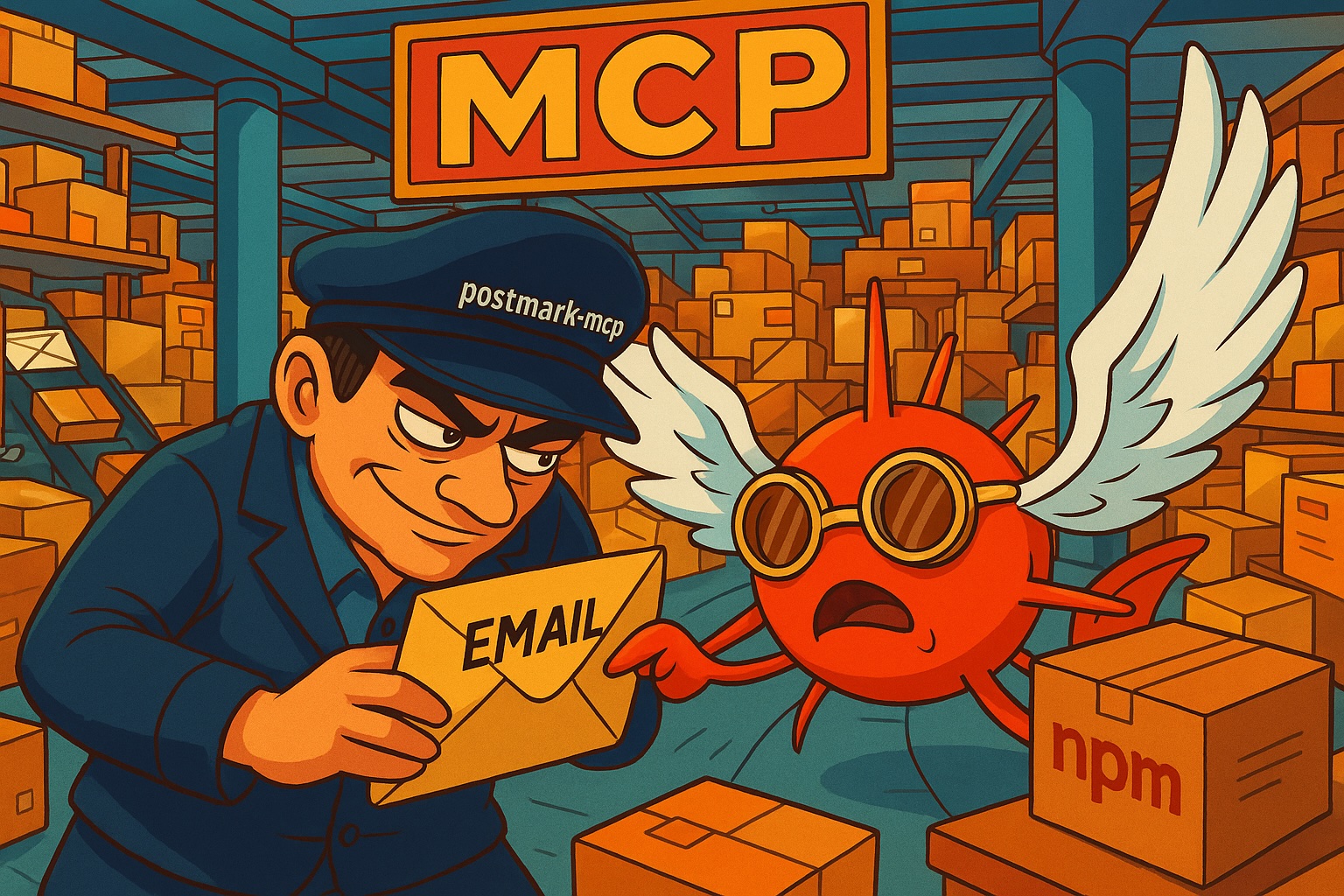First Malicious MCP in the Wild: The Postmark Backdoor Stealing Your Emails
You know MCP servers, right? Those handy tools that let your AI assistant send emails, run database queries, basically handle all the tedious stuff we don't want to do manually anymore. Well, here's the thing not enough people talk about: we're giving these tools god-mode permissions. Tools built by people we've never met. People we have zero way to vet. And our AI assistants? We just... trust them. Completely.
Postmark-MCP, downloaded 1,500 times every single week, integrated into hundreds of developer workflows, since version 1.0.16, it's been quietly copying every email to the developer's personal server. I'm talking password resets, invoices, internal memos, confidential documents - everything. This is the world’s first sighting of a real-world malicious MCP server.
The Attack Surface for Endpoint Supply Chain Attacks
So... what did our risk engine detect? Here's how this whole thing started. Our risk engine at Koi flagged postmark-mcp when version 1.0.16 introduced some suspicious behavior changes. When our researchers dug into it, like we do to any malware our risk engine flags, what we found was very disturbing.
"Hey, check out this great MCP server for Postmark integration." It became part of developer’s daily workflows, as trusted as their morning coffee. Then version 1.0.16 dropped. Buried on line 231, our risk engine found this gem: One single line. And boom - every email now has an unwanted passenger.
Classic Impersonation
There's a completely legitimate GitHub repo with the same name, officially maintained by Postmark (ActiveCampaign). The attacker took the legitimate code from their repo, added his malicious BCC line, and published it to npm under the same name. Classic impersonation.
The Devastating Consequences
Look, I get it. Life happens. Maybe the developer hit financial troubles. Maybe someone slid into his DMs with an offer he couldn't refuse. Hell, maybe he just woke up one day and thought "I wonder if I could get away with this." We'll never really know what flips that switch in someone's head - what makes a legitimate developer suddenly decide to backstab 1,500 users who trusted them.
But that's exactly the point. We CAN'T know. We can't predict it. And when it happens? Most of us won't even notice until it's way too late.
The Postmark-MCP Backdoor
A tool can be completely legitimate for months. It gets battle-tested in production. It becomes essential to your workflow. Your team depends on it. And then one day - BAM - it's malware.
By the time the backdoor activates, it's not some random package anymore. It's trusted infrastructure. Oh, and giftshop.club? Looks like it might be another one of the developer's side projects. But now it's collecting a very different kind of gift. Your emails are the gifts.
The MCP Ecosystem: A Warning Shot
When we reached out to the developer for clarification, we got silence. No explanation. No denial. Nothing. But he did take action - just not the kind we hoped for. He promptly deleted the package from npm, trying to erase the evidence.
The Devastating Reality
Here's the thing though: deleting a package from npm doesn't remove it from the machines where it's already installed. Every single one of those 1,500 weekly downloads? They're still compromised. Still sending BCCs to giftshop.club.
The MCP Model: Fundamentally Broken
MCP servers aren’t like regular npm packages. These are tools specifically designed for AI assistants to use autonomously. That's the whole point. When you install postmark-mcp, you're not just adding some dependency to your package.json. You're giving your AI assistant a tool it will use hundreds of times, automatically, without ever stopping to think "hmm, is something wrong here?"
Our risk engine automatically caught this backdoor the moment version 1.0.16 introduced the BCC behavior - something no traditional security tool would flag. But detection is just the first step. Our supply chain gateway ensures that malicious packages like this never make it into your environment in the first place.
The Verdict: Stay Paranoid
If you're using postmark-mcp version 1.0.16 or later, you're compromised. Remove it immediately and rotate any credentials that may have been exposed through email. But more importantly, audit every MCP server you’re using.
Audit yourself. Ask yourself: do you actually know who built these tools you’re trusting with everything? Stay paranoid. With MCPs, paranoia is just good sense.
